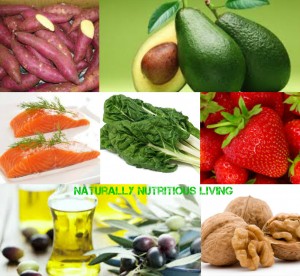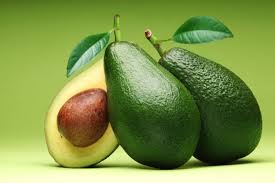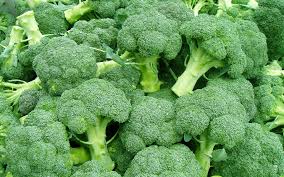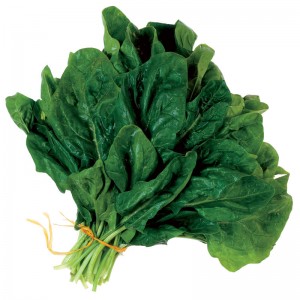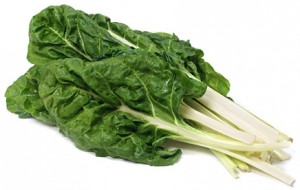Inflammation is your immune system’s reaction to irritation, injury, or infection. It’s a normal response and actually a good thing and it’s a natural part of healing. But, it’s possible that chronic inflammation could have a negative impact on your body and your health. Following an anti-inflammatory diet is one way to counter some of the chronic inflammation that comes from leading a not-so-healthy lifestyle.
Almonds are an excellent source of monounsaturated fats (similar to olive oil), vitamin E and manganese. They’re also a good source of magnesium and plant protein. In research studies, eating almonds has been associated with having a lower risk of cardiovascular disease, probably by improving the fatty acids profile of your blood.
Almonds are also very satiating, so even though they’re a little higher in calories than many other anti-inflammatory foods, eating a handful of almonds may help you stick with a healthy weight loss program.
Avocados are rich in heart-healthy monounsaturated fats, plus they’re an excellent source of magnesium, fiber and potassium, while being low in sodium. Eating half an avocado will also add nicely to your daily intake of vitamins C, A, E, and B complex vitamins. The combination of these nutrients and the polyphenols that work as antioxidants make avocados a must-have for any anti-inflammatory diet.
Broccoli is a member of the cruciferous family of vegetables that are high in phytochemicals called glucosinolates. These phytchemicals are powerful antioxidants. Broccoli is also an excellent source of vitamin C, potassium, calcium and vitamin A, all while being low in calories. Epidemiological studies show that eating a diet high in cruciferous vegetables, including broccoli, is associated with having a lower risk of certain types of cancer.
Blueberries contain large amounts of polyphenols that trigger antioxidant activity and may help to prevent cancer and cardiovascular disease. These phytochemicals, including flavonoids, anthocyanidins, phenolic acids, and tannins, prevent and repair cellular damage done by free radicals. Laboratory studies show the chemicals in blueberries may also prevent cancer by slowing down the growth of cells, and reducing inflammation. They’re also low in calories and add vitamin C, vitamin E and fiber to your daily diet. And don’t forget they’re also absolutely delicious.
Carrots contain beta-carotene, which your body can convert to vitamin A, plus it’s a powerful antioxidant in its own right. Carrots also contain zeaxanthin and lutein, which are also related to vitamin A. Eating a diet rich in these antioxidants may help to reduce your risk of cancer by preventing damage to the healthy cells of your body.
Since carrots are low in calories and a good source of fiber, they can also help you lose weight if necessary – important because obesity is a risk factor for cardiovascular disease, diabetes and some forms of cancer.
The lauric acid in coconut oil has anti-inflammatory properties, according to “Coconut Oil: Discover the Key to Vibrant Health.” In “Virgin Coconut Oil: Nature’s Miracle Medicine,” author Bruce Fife concedes coconut oil is not as effective as anti-inflammatory medicines, but it has no side effects. Many people who have suffered with inflammatory conditions of the intestines like Crohn’s disease have successfully used coconut oil for its anti-inflammatory and soothing properties. Coconut oil’s ability to help improve the balance of microorganisms in the intestines is likely another reason why people who suffer with digestive disorders benefit from using it on a regular basis.
Kale is an excellent source of vitamins A, C and K, and a good source of calcium, iron, magnesium, potassium and vitamin C, while being low in sodium. It’s also low in calories and has a bit of fiber. Kale contains lutein and zeaxanthin, which are related to vitamin A and may help lower your risk of developing cataracts and macular degeneration. In addition, lutein may help prevent atherosclerosis. Kale, along with the other cruciferous vegetables, contains bitter substances called glucosinolates, which work as an antioxidants. Kales is a true nutritional powerhouse.
Olive oil has been linked to heart health and longevity. It’s rich in monounsaturated fats that are good for your blood vessels and has polyphenols that work as antioxidants to protect the cells in your body. Olive oil helps reduce inflammation, reduces high cholesterol and it’s possible that some of the polyphenols may help prevent some forms of cancer.
Oranges are an excellent source of vitamin C and potassium, and they also contain fiber, calcium and folate. The fiber and folate in oranges may help keep your heart healthy, and the vitamin C is important for immune system function, strong connective tissue and healthy blood vessels. Oranges and orange juice are excellent additions to an anti-inflammatory diet.
Salmon contains large amounts of omega-3 fatty acids — more than any other type of fish or seafood. Studies suggest people who have a higher intake of these fatty acids may be less likely to suffer from dry eyes and it’s also good for the heart because the healthy fats help reduce inflammation and keep cholesterol in check. It’s so good, the American Heart Association suggests you eat fatty fish, like salmon, at least two times each week. Salmon is also a good source of an antioxidant called astaxanthin.
Spinach is one of the best known of all the anti-inflammatory superfoods. It contains lutein, which is related to vitamin A and beta carotene. Research shows that people who eat green leafy vegetables, like spinach, may have a decreased risk of macular degeneration. Spinach also gives you iron, vitamin K and folate, and it is very low in calories, so it’s perfect for weight loss diets
Strawberries are delicious, juicy and sweet — and to make it even better, they’re also good for your health. Strawberries are low in calories, high in fiber, and they contain vitamins and minerals your body needs to function normally, including a lot of vitamin C. They also have anti-inflammatory properties and plenty of potential health benefits.
Actually, just about all berries are good for you because the pigments that give them their color also contain antioxidants that can help reduce inflammation.
Sweet potatoes are rich in vitamins and minerals. Like most orange-colored vegetables, they’re extremely high in vitamin A and beta carotene, which is a powerful antioxidant. Sweet potatoes also are a good source of many vitamins and minerals including vitamins C and K, potassium and B complex vitamins. They also have plenty of fiber and aren’t too high in calories, so they make a delicious addition to any diet.
Swiss chard is so beautiful and delicious — it’s a wonderful (and colorful) leafy green vegetable to add to your anti-inflammatory shopping list. Swiss chard is an excellent source of vitamins A and K, a good source of several minerals and very low in calories. Research suggests that Swiss chard may have flavonoids that work as antioxidants and reduce inflammation.
Walnuts are a good source of healthy fats, protein, vitamin E, minerals and phytochemicals called sterols. They also contain monounsaturated fatty acids and omega-3 fatty acids that are good for your heart. Walnuts are also energy-dense, so you may need to watch your portion-size, but, even though they are high in calories, eating a handful of walnuts can help you feel full longer and actually help you lose weight.
Source: about health

